Removal Procedure
Tools Required
| • | J 34730-1A Fuel Pressure Gauge |
| • | J 37088-A Tool Set, Fuel Line Quick-Connect Separator |
- Disconnect the negative battery cable.
- Relieve the fuel system pressure. Refer to the Fuel Pressure Relief Procedure .
- Clean all the fuel and EVAP pipe connections and the surrounding areas before disconnecting the pipes in order to avoid possible contamination of the fuel system.
- Disconnect the fuel feed and return pipes (1 and 2) from the fuel rail. Refer to Quick Connect Fitting(s) Service (Metal Collar) .
- Disconnect the engine compartment EVAP pipe (6) from the chassis EVAP pipe (3).
- Cap the fuel rail pipes and the engine compartment EVAP pipe.
- Raise the vehicle.
- Remove the fuel and EVAP pipes from the bellhousing stud clip (4).
- Remove the fuel and EVAP pipes from the transmission bracket clip.
- Remove the fuel and EVAP pipes from the transfer case bracket clip (4 wheel drive only).
- Disconnect the rear EVAP purge pipe (2) from the chassis EVAP purge pipe (3).
- Remove the chassis EVAP purge pipe (3) from the crossmember clip (4).
- Remove the EVAP canister from the vehicle. Refer to Evaporative Emission Canister Replacement .
- Disconnect the chassis fuel feed and return pipes at the rear fuel feed and return pipes.
- Cap the rear fuel and EVAP pipes.
- Note the position of the fuel and EVAP pipes for aid in installation.
- Remove the fuel and EVAP pipes from the retaining clips (1).
- Remove the fuel and EVAP pipes.
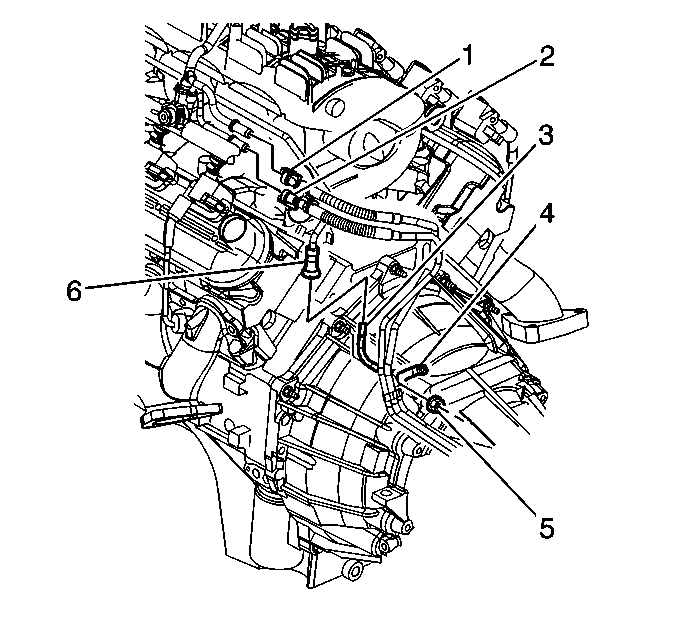
Caution: Unless directed otherwise, the ignition and start switch must be in the OFF or LOCK position, and all electrical loads must be OFF before servicing any electrical component. Disconnect the negative battery cable to prevent an electrical spark should a tool or equipment come in contact with an exposed electrical terminal. Failure to follow these precautions may result in personal injury and/or damage to the vehicle or its components.
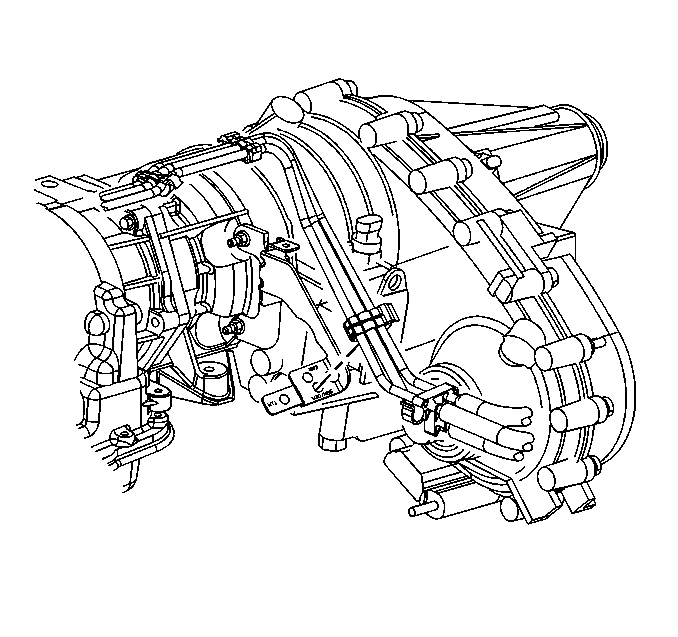
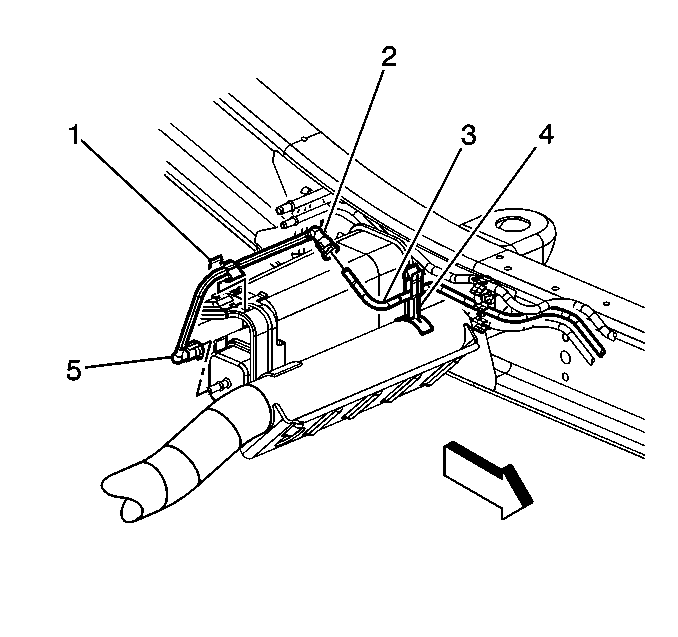
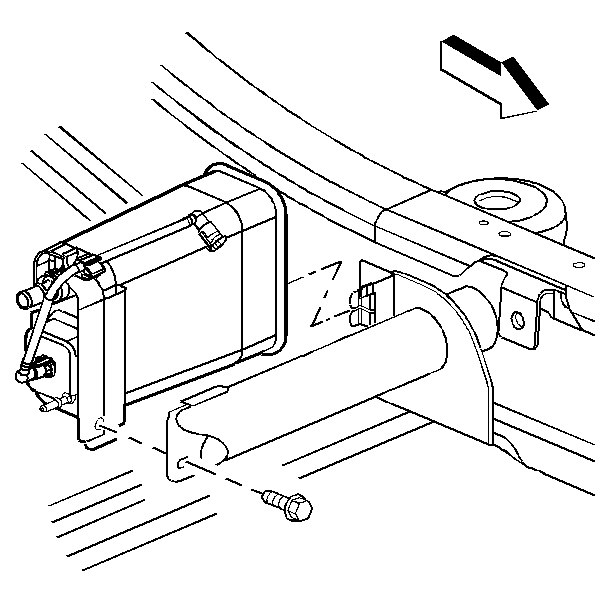
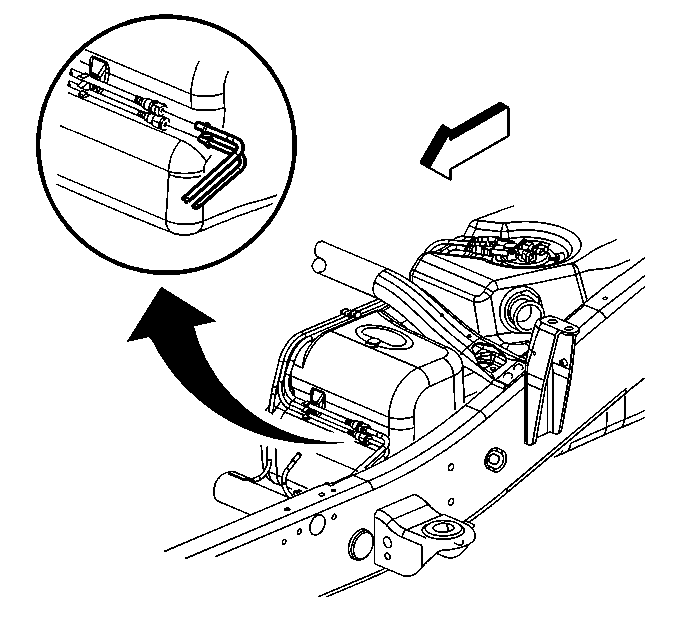
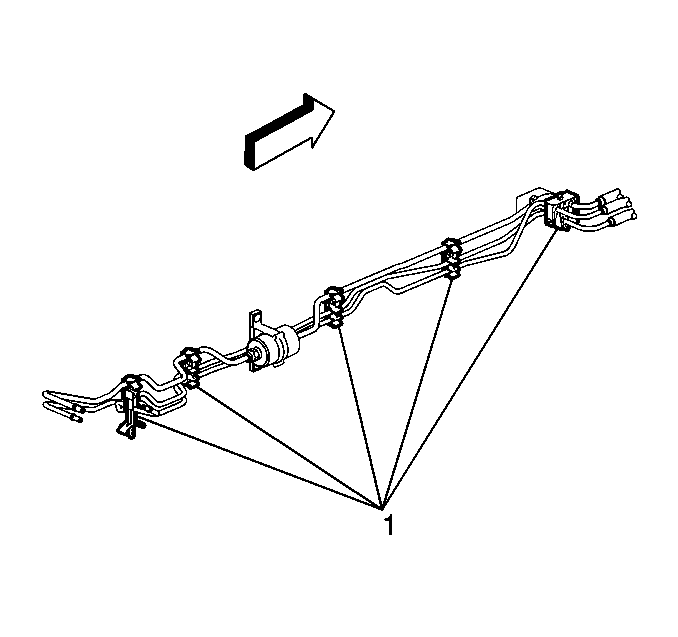
Installation Procedure
- Install the fuel and EVAP pipes into the retaining clips (1).
- Remove the caps from the rear fuel and EVAP pipes.
- Connect the chassis fuel feed and return pipes at the rear fuel feed and return pipes.
- Install the EVAP canister. Refer to Evaporative Emission Canister Replacement .
- Connect the rear EVAP purge pipe (2) to the chassis EVAP purge pipe (3).
- Install the chassis EVAP purge pipe (3) into the crossmember clip (4).
- Install the fuel and EVAP pipes into the transfer case bracket clip (4 wheel drive only).
- Install the fuel and EVAP pipes into the transmission bracket clip.
- Install the fuel and EVAP pipes into the bellhousing stud clip (4).
- Lower the vehicle.
- Remove the caps from the fuel rail pipes and the engine compartment pipe.
- Connect the engine compartment EVAP pipe (6) to the chassis EVAP pipe (3).
- Connect the fuel feed and return pipes (1 and 2) to the fuel rail.
- Tighten the fuel filler cap.
- Connect the negative battery cable.
- Inspect for leaks.

Important:
• When replacing the fuel or EVAP pipes, always replace them with
original equipment or parts that meet the GM specifications for those parts.
The replacement pipes must have the same type of fittings as the original
pipes in order to ensure the integrity of the connection. • Do Not use copper or aluminum tubing to replace steel tubing.
Only tubing meeting the 124-M specification or its equivalent is capable
of meeting all pressure, corrosion and vibration characteristics necessary
to ensure the durability standard required.





| 16.1. | Turn the ignition switch ON for 2 seconds. |
| 16.2. | Turn the ignition switch OFF for 10 seconds. |
| 16.3. | Turn the ignition switch ON. |
| 16.4. | Inspect for fuel leaks. |
